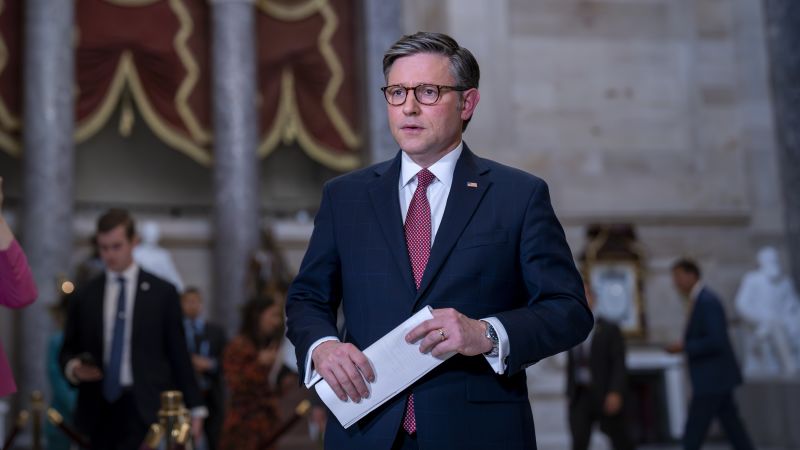Speaker Mike Johnson is facing pressure from GOP members to raise the threshold required to trigger the procedure to oust him as speaker, a move that would help him pass foreign aid bills without relying on Democrats for support. It is uncertain what Johnson will decide, but there is speculation among members that he is considering making changes to the motion to vacate the chair process. In recent days, House Republicans have privately suggested to Johnson to include language in the rule for foreign aid bills to make it more difficult for a single member to instigate the motion to vacate.
Currently, any individual member can force a floor vote on the motion to vacate, a condition that was part of the agreement when Kevin McCarthy became speaker last year. Reports of Johnson being urged to raise the threshold were initially shared by Punchbowl News. The House Rules Committee is set to convene to discuss the foreign aid bills, and the text of the rule will be revealed after the committee approves it, likely later in the day. Democrats will be necessary in the committee vote as well as on the floor to advance the rule, given the opposition from hardliners.
Overall, the situation highlights the potential power struggle within the GOP and the efforts by Johnson to navigate these challenges while still fulfilling his duties as speaker. The pressure from members to alter the motion to vacate process signifies a desire to protect Johnson’s position and ensure passage of important legislation, such as foreign aid bills. The negotiations and discussions surrounding changing the threshold for triggering the motion to vacate suggest an acknowledgment of the current political dynamics within the GOP and the need for strategic decision-making.
The upcoming House Rules Committee meeting to consider the foreign aid bills will be crucial in determining the direction Johnson will take in response to the lobbying from GOP members. The unveiling of the rule text following the committee’s approval will shed light on any potential changes made to the motion to vacate process. Given the expectation that Democrats will be needed for both the committee vote and floor vote to advance the rule, Johnson’s strategy in handling this situation will be of significant importance in maintaining party unity and advancing legislative priorities.
This development also underscores the broader implications of internal party dynamics and the challenges faced by GOP leaders in balancing competing interests within the party. It reveals the intricate decision-making process involved in such high-stakes political maneuvers and the importance of strategic planning in navigating complex legislative issues. The outcome of Johnson’s response to the pressure from members will not only impact his own position as speaker but also have implications for the overall functioning of the GOP in the House of Representatives. As the situation continues to evolve, it will be interesting to see how Johnson’s leadership is tested and how he ultimately decides to address the demands from within his party.
You Might Like
© 2024 West Timelines. All Rights Reserved.


